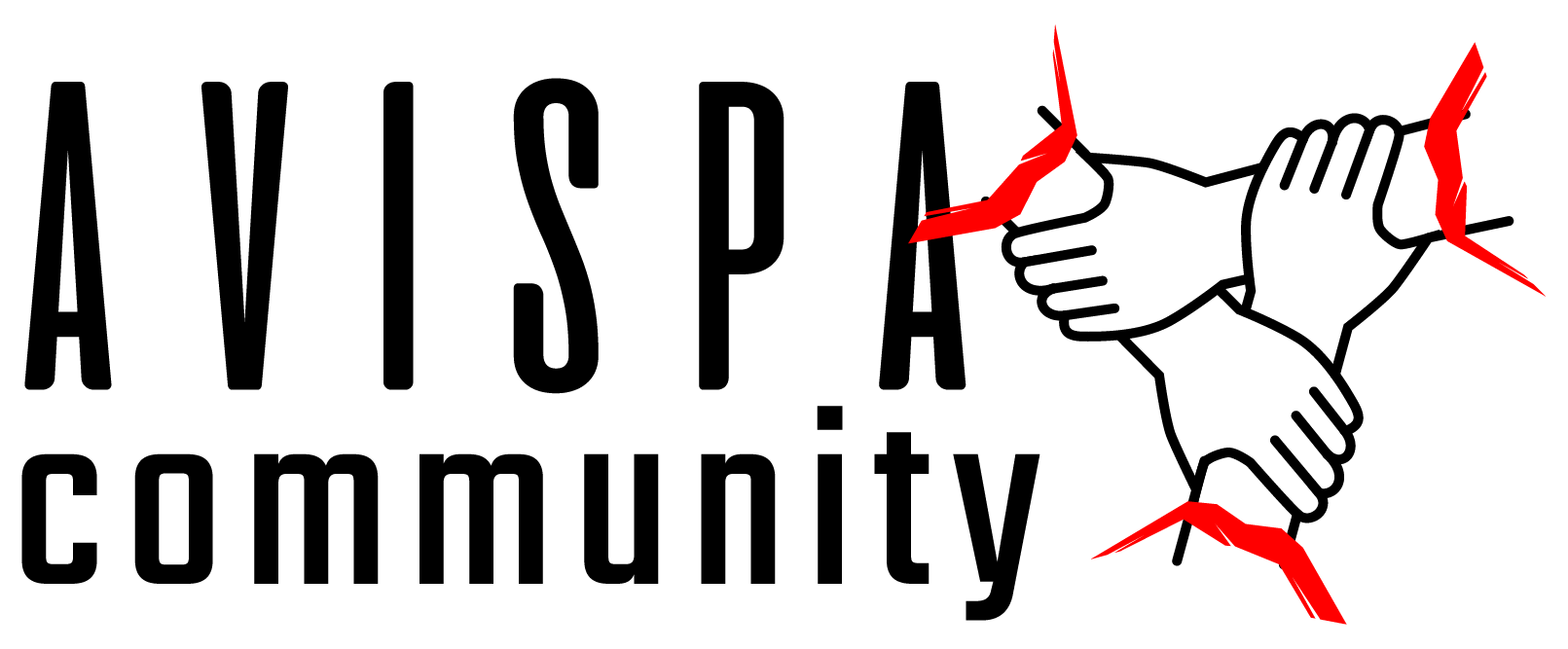Translation by Schools for Chiapas
The panel established under the Mexico-U.S.-Canada Free Trade Agreement (T-MEC) ruled on December 20 in favor of the United States, finding that elements of Mexico’s presidential decree, signed by then-President Andrés Manuel López Obrador in 2023, banning glyphosate and genetically modified corn cannot be enforced “because they are not based on adequate risk assessment, scientific evidence, and relevant international standards.”
The dispute panel was requested by the United States after Mexico banned the importation of genetically modified (GM) corn. The Mexican government said it did not share the panel’s findings, but will respect them.
The national campaign Sin Maíz, No Hay País (No Corn, No Country or Without Corn, There is No Country) argues that the trade panel has neither the legitimacy nor the capacity to evaluate the measures adopted by a country, aimed at protecting the health of its population, preserving its biocultural wealth and safeguarding the genetic reservoir of a crop that, due to its production volume and diversity of uses, is the most important in the world.
According to the Secretariat of Agriculture and Rural Development, Mexico has 64 corn breeds, 59 of which can be considered native. In 2021, production of the grain was more than 27 million tons and it is so important that it is grown in all 32 states of the country.
“Therefore, under no circumstances can a trade agreement be above Mexico’s sovereignty,” say the networks, organizations and individuals that make up the national campaign.
To ensure and strengthen Mexico’s position, they mention the importance of raising to constitutional status the ban on the planting of genetically modified corn and its consumption as a staple food.
In this regard, a few weeks ago, President Claudia Sheinbaum highlighted in her conference that in order to protect the grain, the presidential decree can be elevated to constitutional status. The initiative was presented in the reform package presented at the beginning of 2024 by López Obrador, a few months before leaving office.
The reform to Articles 4 and 27 focuses, among other issues, on declaring Mexico a country free of genetically modified (GM) corn for planting and human consumption, and for the recognition of corn as a staple food and element of national identity, without commercial interference.
The initiative refers to the modification of the third paragraph of article 4 of the Constitution, which declares corn to be an element of national identity, free of transgenic genetic modifications; while the fifth paragraph establishes the State’s obligation to ensure the conservation and sustainable management of national biodiversity.
Section XX of Article 27 establishes the State’s obligation to promote the conditions for integral rural development and to guarantee the “optimal use of land free of genetically modified corn crops and seeds.”
In August of this year, the initiative was approved by the Chamber of Deputies and was sent to the Board of Directors for its constitutional implications. The legislators’ official website mentions that as of the decree, the entry into the country of genetically modified corn must only be allowed in the form of broken corn, or fragmented grains, so that it lacks the capacity to germinate, unless there is a health risk assessment that takes into account the practices of consumption, diversification, safeguarding, commercialization, industrialization and distribution that may be caused by mixing with corn free of this technology.
On the other hand, in the final report on the dispute, in response to the panel’s question as to whether the 2023 decree could be modified, Mexico responded that it is extremely difficult to answer in the absence of specific findings and reasoning.
Mexico recalled in the case of the disputed claims that, if it were forced to modify the 2023 decree, “it would be withdrawing measures considered necessary to comply with Mexico’s legal obligations to indigenous peoples.” In this case the panel had no comments.
Controversies
With the establishment of the panel, the process began in 2023, in which both countries submitted written arguments to issue a resolution on December 14. But the ruling occurred six days later, on December 20.
The panel was comprised of Christian Häberli, from Switzerland, chairman of the panel, as well as panelists Hugo Perezcano Díaz, from Mexico, and Jean E. Kalicki, from the United States. In addition, experts in international trade and legal aspects related to trade processes.
Sin Maíz No Hay País points out that they are not scientists, nor specialists in public or environmental health. Their work is limited to resolving the administrative dispute filed by the United States against Mexico, without considering the possible impacts of genetically modified corn on the country’s health, biodiversity or environment.
In a context of 30 years Mexico has documented the effects of the use of biotechnology on food and crop biodiversity. The Mexican government presented the panel with a compilation of scientific and peer-reviewed articles.
The United States presented research financed by the industry itself and even publicity pamphlets, which do not prove that genetically modified corn is harmless for the Mexican population.

For the national campaign Sin Maíz No Hay País, for nine years the agribusiness has had the possibility of carrying out all the scientific studies to evaluate the health and environmental effects of planting GM corn in Mexico, under judicial supervision and that of the plaintiff community, but “to date it has refused to carry out any study in Mexico.”
“The Mexican government offered to the U.S. to carry out a joint risk assessment that would cover the needs of both populations, which the U.S. refused to do because it considered it unnecessary. [The panel’s decision] demonstrates the risks that basic foodstuffs are part of trade agreements and are considered as a commodity and not as a priority good for humanity,” emphasizes a communiqué from the national campaign.
The U.S. representation also reiterated that Mexico’s presidential decree hinders free trade, but according to the organizations, the argument is unfounded, since corn imports have grown in recent years, concentrating mainly on grain for animal consumption, based on official import figures.
“It is essential that we continue to demand that the Mexican government maintain its firm stance against GM corn in the face of transnational interests. This debate has highlighted deficiencies in the international systems for evaluating genetically modified organisms and their risks to human and environmental health,” he emphasizes. The panel also failed to evaluate the implications on corn diversity, which is fundamental to fight against the consequences of climate change.
The Root
Mexico is the center of origin, domestication and diversity of corn, and has the largest gene pool in the world, according to the National Council of Humanities, Sciences and Technologies (Conahcyt), the result of breeding by peasants over the last 10,000 years.
During the administration of Andrés Manuel López Obrador, two presidential decrees were issued prohibiting the importation of genetically modified (GM) corn for agricultural crops, in order to avoid risks to the biodiversity of native corn and human health.
In the first decree, published in 2020 in the Official Gazette of the Federation (DOF), a general restriction on genetically modified corn was proposed, but the provision lacked clarity.
By February 2023, a new decree was published to replace the previous one, which, in addition to banning this corn for human consumption, provides for gradual substitution and specifies, for example, that genetically modified corn can no longer be imported, that no permits for planting will be granted, that this corn must not be present in the food of the Mexican population (in the dough and tortilla industry) and that gradually this corn must not be present in the livestock industry and other industrial food uses either.
Based on the fact that the US export of corn to Mexico is a 5 billion dollar business, that is to say, it is enormous, highlights Tania Monserrat Tellez of Sin Maíz No Hay País, “then the US, in order to pressure Mexico, and for us to remove those provisions, began to activate some articles of the Trade Agreement.”
Following the publication of the decree in the Federal Official Journal (Federal Official Journal)in August 2023, the United States requested a dispute resolution panel with Mexico on agricultural biotechnology, specifically genetically modified corn, and invoked Article 31 of the T-MEC.
Article 31 establishes that when a country considers that another country is not complying with the agreement, technical consultations can be held, which allows the US to question Mexico regarding the regulations it has adopted.
“Since the beginning of the Free Trade Agreement (NAFTA), there have been very critical voices in Mexican society regarding the inclusion of basic grains, including corn since 1994. Now, this is precisely the result of this handover of our country, of the market, of our food since the signing of the agreement,” laments Tellez.

“It should be clarified that what is being questioned in the panel is not whether GMOs are harmful or not, what is being questioned in the panel is a procedural issue of whether Mexico complied with the process established in the T-MEC to establish a provision such as the decree,” she explains.
Civil society from Mexico, the United States and Canada participated in the panel and spoke out against U.S. pressure on Mexico through the T-MEC. The Mexican organizations sought to broaden the discussion within the panel with more input.
They contributed in the form of Technical Opinions, which means that any non-governmental entity can request the panel to send a technical opinion and, in general terms, the opinions issued by the Mexican and US organizations were accepted and some were rejected.
“Those of Canada were rejected because it is an interested third country and they argued that they were not part of the controversy,” explains the representative of Sin Maíz No Hay País. But, of all the civil society arguments, only one was not in favor of Mexico.
In March 2024, written opinions were formally presented to the panel and, in them, the organizations sought to incorporate different elements such as the impact on the great diversity of corn in Mexico as a center of origin and diversification of the crop; the impacts on the biocultural heritage, the right to health and to appeal to a precautionary measure in the absence of evidence on the industries involved in its creation and distribution.
But the dispute panel process continued without the formal participation of the organizations because there is no other mechanism provided within the panel for society to participate. “What we did was to organize a campaign to disseminate what was happening in the panel, mainly in social networks,” says Tellez.
Among other actions, they called for the signing of a letter sent to the panelists inviting them to resolve in favor of the health of Mexicans, cultural heritage and environmental and cultural rights, in the context of a face-to-face session between the countries and the panelists held in Mexico City.
In this context, the results of the disclosure campaign were also presented, as well as the 125,000 signatures gathered against genetically modified corn.
After the negative ruling against Mexico, Tellez points out that there is no way for civil society organizations to appeal. “We believe that the panel is a procedure that responds to a structure that is made for free trade to win without taking into account the damages it can cause, in this case the rights affected by the arrival of GM corn in our country,” she says.
U.S. Cannot Prove Safety of Corn
“The (U.S.) companies have had the opportunity to make requests to plant transgenic corn, but they have not done so because they do not want to comply with the procedure to demonstrate the harmlessness of those corns. So, in all these years and outside the framework of the lawsuit, neither the U.S. industry nor the government has developed any evidence to demonstrate that corn is safe for the population. We consume eleven times more corn than in the U.S.,” Téllez reports.
She points out that they have also not demonstrated the innocuousness in terms of the environment, such that they have not applied for permits to plant, “they could do so in the framework of the lawsuit”, but, in fact, they do not want to be submitted to those tests, “so there is no evidence.”
“We question: why should the buyer have to prove that a product that someone is selling is harmful? It is absurd, under no circumstances does a consumer prove to the seller that what he is going to buy is not harmful. The United States should prove it and has not done so.”
The national campaign Sin Maíz No Hay País appeals to the precautionary principle, as it is a legal concept in which, when there is doubt about the existence of damage from the mentioned technologies, precautionary measures must be taken, “and that is what Mexico is doing.”
In the dispute panel, the Mexican government supported its defense with the arguments of Conahcyt, Semarnat, Cofepris. The Secretariat of Economy maintained a legal team that carried out the defense.
Proven Contamination
According to the Agricultural Markets Consulting Group (GCMA), from January to November 2023, more than 18 million tons of genetically modified corn entered Mexico. Although the export of this grain has a very long history, since the 90’s with NAFTA there was a major growth in imports.
In 2001, the first reports on the presence of transgenes from genetically modified organisms (GMOs) in native grains from the Sierra de Oaxaca were presented. The National Council of Humanities, Sciences and Technologies (Conahcyt) conducted a molecular analysis of 5,304 samples of native corn in Mexico from 2000 to 2023.
This is part of the Evaluation of the Presence of Genetically Modified Sequences in Mexico’s Native Corn, which also highlights that from 2009 to 2023, the percentage of presence of transgenes at the national level increased from 1% to 33%.
Regarding the 5,304 samples analyzed, Conahcyt showed that 12%, that is, 644 presented genetically modified sequences. Most of them are concentrated in eight of the 32 states of the country, that is, 26% of the territory.
The southern region of the country presents a larger amount of data and studies, mainly in the states of Oaxaca and Chiapas, although Mexico City and Puebla are the territories where the highest values of GM sequence presence were found, 35% and 27% respectively.
“It was observed that after the release of genetically modified corn in the country (2005 to 2012) there was a notable increase in the presence of transgenes in the states of Jalisco, Michoacán, Oaxaca, Puebla and Sinaloa,” the study states.
Through these results, the Council urged the need to develop short-term strategies to mitigate the spread of transgenes in native corn; it proposed the dissemination of the environmental problem and how it affects Mexico’s gene pool and producers.
It also talked about the design and implementation of biosafety strategies for the protection of native maize, in accordance with traditional agricultural knowledge, beliefs and biculturality for each of the regions of the country. These arguments were presented in the panel as part of Mexico’s strategy in the disputes with the United States.


